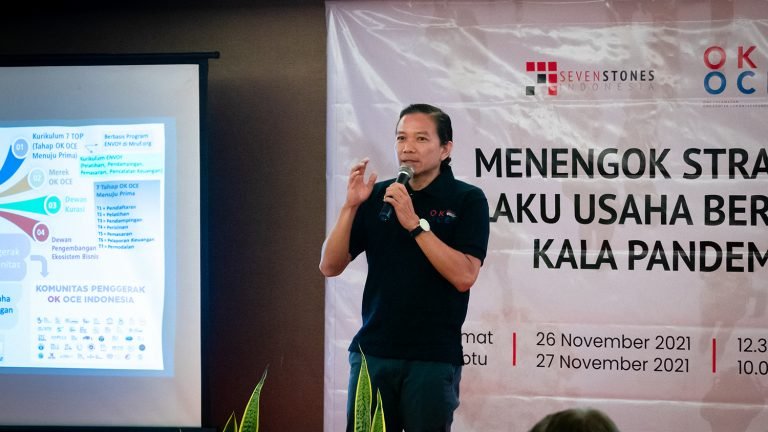The Prabowo Subianto administration has been making waves in its first 100 days. This time, the spotlight is on the Ministry of Environment, which has just handed over the authority to manage 600 types of business activity permits (under the Indonesian Standard Industrial Classification, or KBLI) to local governments.
This move, previously the central government’s domain, aims to speed up Indonesia’s economic growth, targeting a 6-8 percent increase over the next five years.
Fast-track Approval Process
Indonesia’s Minister of Environment, Hanif Faisol Nurofiq, announced that local governments, whether it’s provinces, cities, and regencies, now have the power to manage these permits, mainly to fast-track the environmental approval process.
Hanif explained that this delegation is part of the effort to boost Indonesia’s economic growth during President Prabowo Subianto’s five-year term.
Currently, there are at least 800 licensing authorities held by the central government. Of that number, with the issuance of the Minister of Environment Decree, 600 have been handed over to provincial and regency/city governments.
“Of the 800 (business classifications held by the central government), we have delegated 600 to provincial and regency/city governments, so we hope to expedite the environmental approval process. However, we must remind you that we will monitor compliance and law enforcement,” said Hanif on Tuesday, December 3, 2024.
Hanif mentioned that local governments will get the technical guidance they need to ensure the environmental approval process adheres to the rules and standards.
This guidance includes overseeing environmental documents like impact analyses, management plans, and monitoring programs, and making sure they meet quality standards.
Reduce Investment Bottlenecking
This delegation aims to speed up the investment climate by sticking to standardized permits and clear law enforcement. Hanif also mentioned that the delegated projects will cover key sectors like energy, infrastructure, transportation, and health.
This is music to the ears of business folks and investors. Even though the government says they’ve issued about 10 million Business Identification Numbers since the Online Single Submission (OSS) Platform launch in August 2021, a lot of entrepreneurs still find the permit application process slow and complicated.
Since the OSS (Online Single Submission) system has only been in place for three years, there are still plenty of issues on the ground that need ironing out.
For example, local governments have the discretion to grant permits for business activities that aren’t yet listed in the Indonesian Standard Industrial Classification (KBLI). This applies to new types of businesses that haven’t been classified before. Generally, business permits aren’t issued until the local government conducts a review first.
With this delegation system, the hope is that the integration of OSS permits from the central and local governments can become more consistent, reducing the bottlenecks in business and investment permits in Indonesia.
Mastering KBLI Maze with Ease
Mastering Indonesian Standard Industrial Classification/KBLI can be quite a challenge, especially for foreign investors or business owners.
The structural bureaucracy and language barriers can pose significant challenges in understanding and applying for the right business classifications. The process can become even more complicated if official resources are only available in Bahasa Indonesia.
Avoid these pitfalls by consulting with experts who are well-versed in Indonesian Standard Industrial Classification/KBLI. At Seven Stones Indonesia, we can help you decipher the codes, pinpoint the appropriate classification for your business, and assist with the entire application process.
As the saying goes, success is where preparation and opportunity meet. So, don’t wait! Reach out to our team today to learn more about Indonesian business permits and licensing. Let Seven Stones Indonesia ensure your business meets all the regulatory requirements.

















